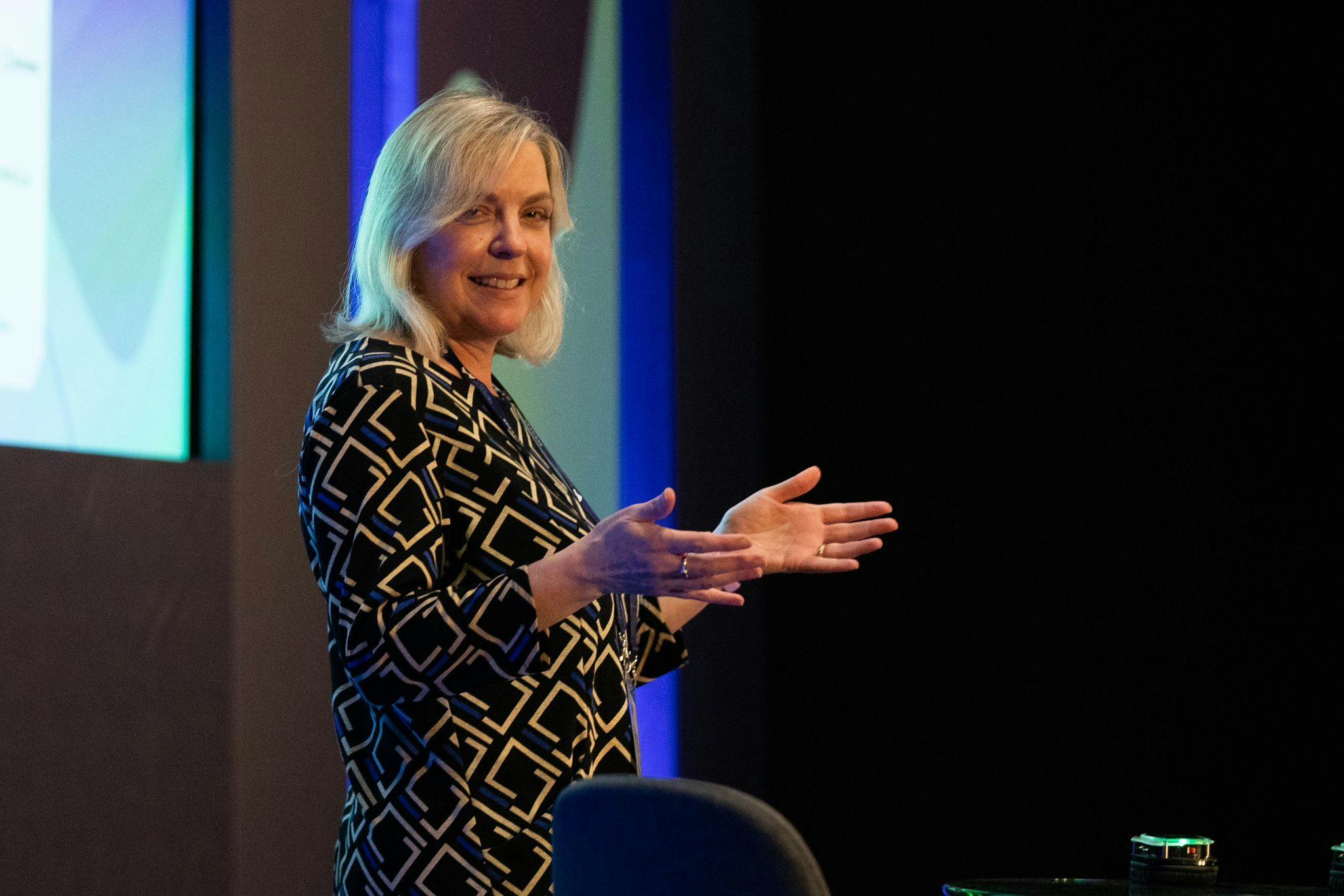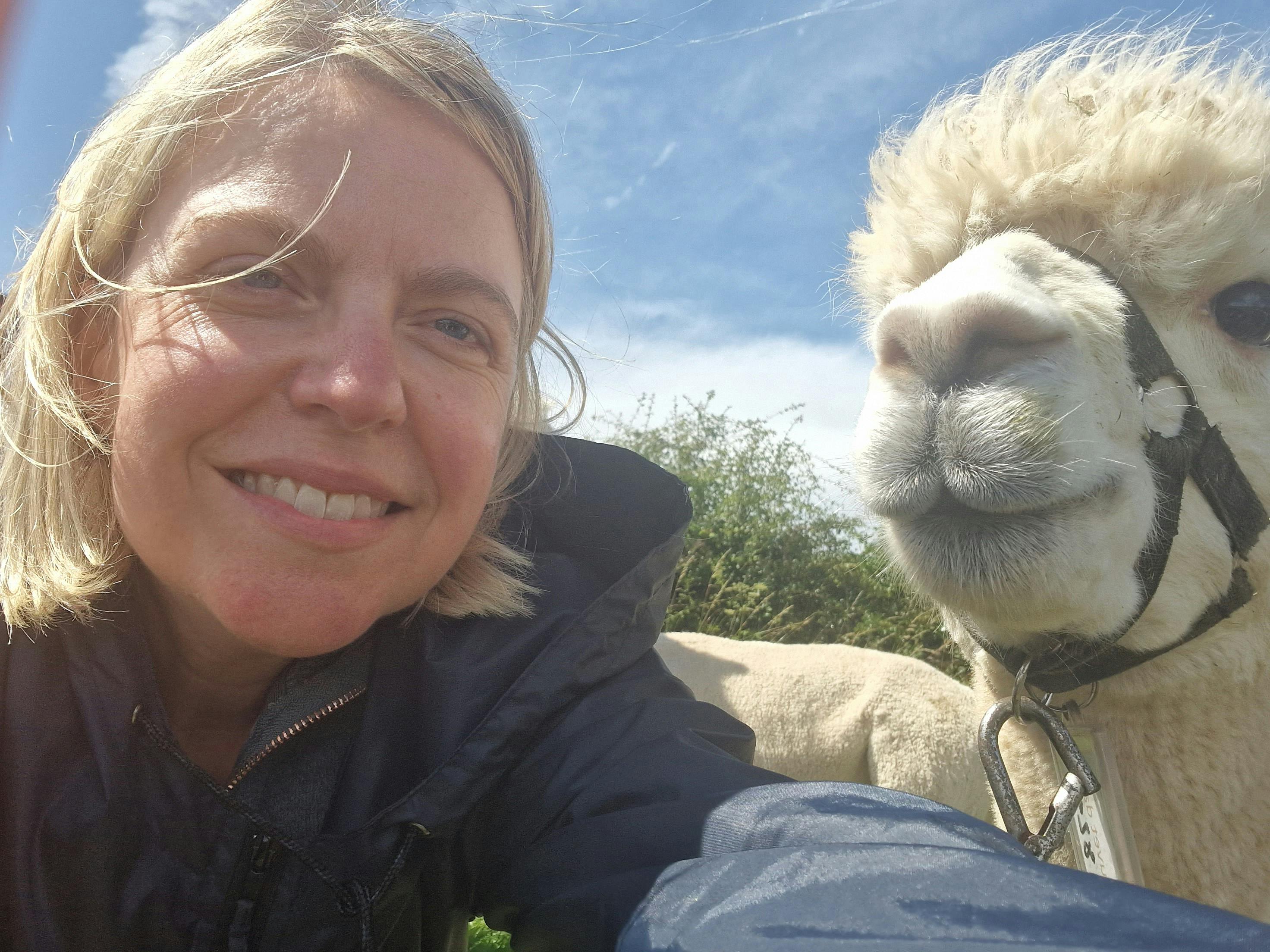For Kate Sargent, the FT’s Chief Data Officer, working in data has never been a trend or a pivot. It’s been a lifelong pursuit. From university lecture halls to boardroom strategy sessions, Kate has built a career defined by curiosity, rigour and impact. As a mother of two and a senior leader in a traditionally male-dominated field, she brings a distinctive blend of technical depth and human insight to everything she does. In this profile, Kate reflects on her journey, the principles that have shaped her leadership, and why data has never been more vital to the FT’s future.

A love for problem-solving — and a penny-drop moment
“My early love of problem-solving led me to study maths at uni, where I basically got to spend three years solving problems. In my final year, I took a module called Operational Research which is the application of mathematical techniques to solve business problems, not just operational but also commercial and financial.
This for me was a penny drop moment when I realised I could convert my interest into a paid occupation, and so I did and I've never looked back.”
A front-row seat to 30 years of transformation
“I started out in my career nearly 30 years ago. This was before the mainstream proliferation of ecommerce or the introduction of smartphones. As a result, data volumes were much smaller than they are now.
My first role involved statistical modelling via an MS-DOS command line (that may only mean something to readers of a certain age!) and a home-grown tool. Nowadays, our much bigger data demands more powerful tools and techniques to analyse it, and more sophisticated governance processes to manage it.
Over the past 30 years, I've seen the discipline evolve from largely operational, to commercial, to strategic, and become more technological in nature as we move into an era increasingly powered by AI.”
What it means to be a Chief Data Officer
“Of course, there's no typical day and surprises are generally not a good thing in my role!
The CDO remit is broad, ranging from the technical, through legal considerations, to advising on commercial and strategic decisions, as well as evolving the company culture around data. Ideally, the role's time should be spread across all of these.
I keep my time in balance, so the average week may involve meetings with my leadership team, our internal customers, ensuring our data is well governed, and that our technology, tools and processes are fit for purpose.
I try to keep a day free from meetings each week, if I can, to think about our future as a team, as a Product & Technology function, and as an organisation. As a CDO, I believe that I'm ultimately successful when I can work with my team to improve our company's strategic outcomes and create maximum value from the FT's data asset.”
Busting myths about data in media
“People outside of the FT are often surprised that we have such advanced data and analytics capability. I think they think of our print papers and imagine there's not a great deal of scope for data there!
With a largely digital, subscription, content business, the opposite is actually true – we have huge amounts of data. Every article tells a data story behind the face-value content, and every reader leaves a different footprint each time they visit. That makes for a pretty fascinating landscape to explore and optimise.
However, the other aspect that data professionals often don't realise, initially, is that we mustn't over-personalise the news. An amount of our content should be left unoptimised in order to deliver on our mission, and that's something that's fairly unique to news media.”
Thriving in a male-dominated field
“Since leaving school, I've been in the 20–30% club. On several occasions, I've been the only woman in an, otherwise, all-male team, or have led all-male teams. I'm used to it!
With a couple of exceptions earlier in my career, I've generally felt that I've been treated fairly and respectfully, though I've had to adapt by working on my assertiveness and visibility, and to be aware when any minimising behaviours creep in. I still don't always get it right.
Currently only 11% of data leaders are women. The FT is a notable exception to this with a majority, so I make sure that I take the time to mentor younger women externally, in our field. It'd be fantastic to see more of this talent rising into leadership roles in the future, improving our pipeline of role-models.”
Balancing high impact work with parenthood
“My children are studying for A-levels and heading off to university now but the challenges when they were younger aren't unique to my field, or to mothers (rather than fathers), though it's harder when the majority of your colleagues don't typically have to contend with pregnancy and maternity leave themselves.
The early years are a juggle but I was lucky to have a strong support network. In spite of that, like all working parents, I've had my fair share of ‘moments’ when childcare has fallen through, or sickness has disrupted my best-laid plans. However, military-grade organisation, and lots of self-forgiveness when the wheels came off, have seen me through.
I imagine it may be slightly easier now with hybrid working and a generally more favourable attitude to flexible working. I had more flexible working requests turned down than I can remember, which feels very ‘of its time’ now and was particularly unhelpful at the time.
As a result of my experience, and just because it's the right thing to do, I try to support parents of young children where I can. I'm proud to say that I helped two of my Directors arrange a job-sharing arrangement, which is working brilliantly and enabling both to continue their careers whilst parenting their young children.”
Leading ethical innovation with AI
“We've recently won industry awards for our AI Transformation Programme but one aspect of this work that I'm particularly proud that we were able to deliver is the FT's Responsible & Ethical AI Framework.
This was published earlier this year and is a series of statements that represent our boundaries as regards the use of AI, including our approach to copyright, the sustainable use of AI, and the way that we control for bias and harm to the FT's reputation.
There's more to do to embed and evolve this as the technology matures but to me it represents something very important and fundamental to our organisation and its values.”
Looking ahead: the future of data at the FT
“We're anticipating significant market changes for publishing as a sector as our readers embrace AI tools and new ways of consuming content. We're seeing behaviours change extremely quickly, however, fundamentally, quality news is still needed and it's critical that trusted sources continue to have their share of voice to counteract misinformation.
Now isn't the time to be complacent and I think we have a vital role to play in the future. Data will need to be at the heart of that and it's more important than ever that it can be trusted, and that we're leveraging it to understand and meet our readers’ evolving needs.”

Words of advice to her younger self
“As a quiet, nerdy, 5’2” girl from my local comprehensive school, I don't think many people expected much of me, including me probably!
However, when I started out, Chief Data Officers didn't exist, Data Science wasn't yet a term, and AI was largely the stuff of science-fiction. This inadvertently gave me a lot of freedom to follow what I enjoyed, unconstrained by a proscribed career path. So I'd definitely say to anyone starting out that you're capable of more than you think.
Otherwise, I'd tell her to embrace change and don't ever stop learning. The biggest lessons won't be those that you pick up on training courses, they'll be the ones you learn from working with people that are different to you, in the moments when you feel out of your depth, and often by just persisting with the difficult things when you know that they matter.”
BUILD A NEWSWORTHY CAREER AT THE FT. FIND YOUR NEXT ROLE WITH US.